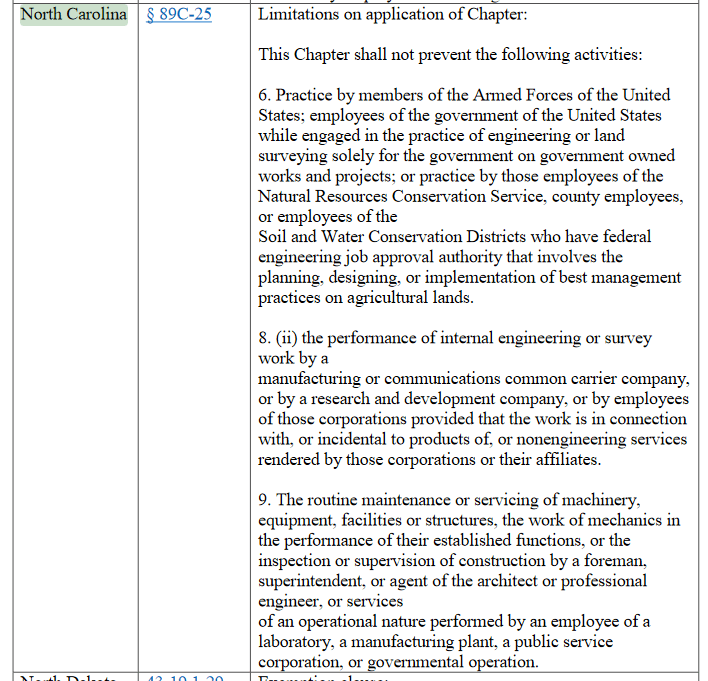Any service or creative work, the adequate performance of which requires engineering education, training, and experience, in the application of special knowledge of the mathematical, physical, and engineering sciences to such services or creative work as consultation, investigation, evaluation, planning, and design of engineering works and systems, planning the use of land and water, engineering surveys, and the observation of construction for the purposes of assuring compliance with drawings and specifications, including the consultation, investigation, evaluation, planning, and design for either private or public use, in connection with any utilities, structures, buildings, machines, equipment, processes, work systems, projects, and industrial or consumer products or equipment of a mechanical, electrical, hydraulic, pneumatic or thermal nature, insofar as they involve safeguarding life, health or property, and including such other professional services as may be necessary to the planning, progress and completion of any engineering services.
A person shall be construed to practice or offer to practice engineering, within the meaning and intent of this Chapter, who practices any branch of the profession of engineering; or who, by verbal claim, sign, advertisement, letterhead, card, or in any other way represents the person to be a professional engineer, or through the use of some other title implies that the person is a professional engineer or that the person is licensed under this Chapter; or who holds the person out as able to perform, or who does perform any engineering service or work not exempted by this Chapter, or any other service designated by the practitioner which is recognized as engineering.
Emphasis mine


